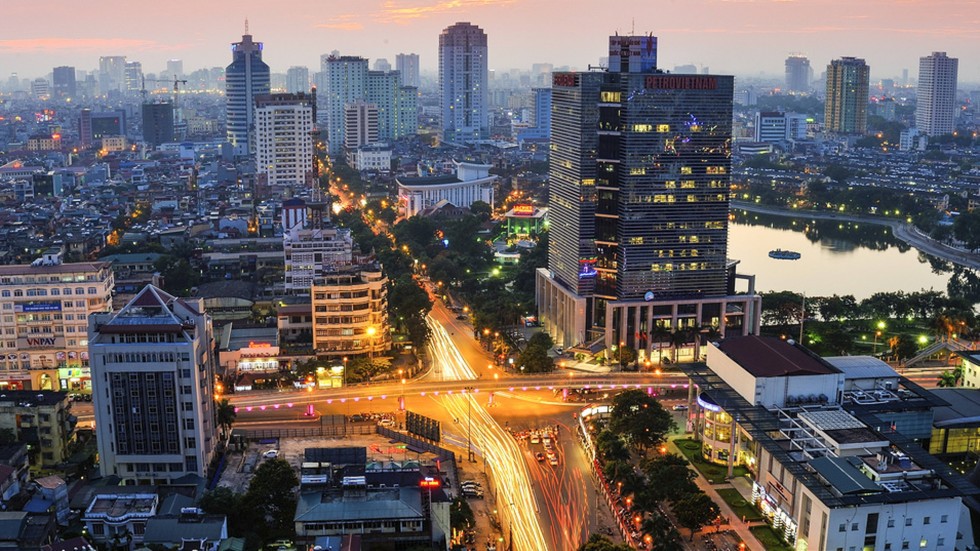What taxes in Vietnam should Foreign investors pay attention to?

Vietnam is in the process of economic integration, so Many foreign individuals/organizations are investing in production/business Vietnam. However, in the investment process of individuals/organizations, there is one problem that foreign investors have to pay attention to which is taxes. So, What taxes in Vietnam should Foreign investors pay attention to? Let’s find out in this article with LSX Law firm.
Legal Ground
- Investment Law 2020
- Decree No. 218/2013/ND-CP
- Law on corporate income tax 2008 amendments and supplements 2013
- The Law on personal income tax 2007 amendments and supplements 2012
- Law on value-added tax 2008 amends Changes and supplements 2013
So, what are foreign investors, rights, and obligations of foreign investors?
What is a foreign investor?
So According to the provisions of law, a foreign investor is understood as follows:
“Foreign investor is an individual with foreign nationality or an organization established under foreign law conducting business investment activities in Vietnam.”
So, What are the rights and obligations of foreign investors?
Rights of foreign investors:
- To conduct investment activities; doing business in industries/occupations that are not prohibited by law;
- Having the autonomy to decide on investment and business activities in accordance with the law. Use credit capital sources, support funds, land and other resources as prescribed by law;
- Select the form of investment in accordance with the law: establishment of an economic organization; capital contribution, share purchase; buy capital contribution, sign BCC contract; types of PPP contracts;
- Transfer of investment projects, adjustment of investment contents (objectives, scale, location, investment capital, investors…
- Termination of investment projects;
- Proposal for investment incentives in accordance with the provisions of the law.
obligations of foreign investors
- Carry out the procedure for registration of the account used on the system of national information on foreign investment;
- to declare and fully pay taxes according to the law;
- Comply with legal regulations during the implementation of investment projects in Vietnam such as: labor law, environmental law; tax law; construction; land; social insurance; intellectual property …
- Deposit for project implementation (if any);
- Comply with the regime of reporting investment activities;
- Satisfy the conditions for investment industries and trades; conditional business throughout the process manufacturing operations; business.
What taxes in Vietnam should Foreign investors pay attention to?
So foreign investors should perform tax obligations According to Vietnamese law provisions as follows::
Corporate income tax
So, Corporate income tax of all foreign investment projects will be the same amount as Vietnamese enterprises are charged if they are not eligible for incentives.
Corporate income tax = (Total revenue + Total valid expenses) x 20%.
However, there will be businesses with tax incentives; based on the location of project registration:
- Specify the location of the project in which industrial park to determine CIT incentives for enterprises in the industrial park.
- Tax exemption for 2 years, 50% reduction for the next 4 years for enterprises in industrial parks that are not located in areas with favorable conditions.
Decree 218 also stipulates as follows:
Tax exemption for 2 years and reduction of 50% of payable tax amount for the next 4 years for income from the implementation of new investment projects specified in Clause 3, Article 15 of this Decree and incomes of enterprises from implementing new investment projects in industrial parks (except for industrial parks located in areas with favorable socio-economic conditions).
So Areas with favorable socio-economic conditions specified in this Clause are urban districts of special urban centers, grade I urban centers directly under the central government and grade I urban centers directly under the province, in case the industrial park is located in both favorable and unfavorable areas, the determination of tax incentives for industrial parks shall be based on the area with a larger area of the industrial park. Also, The determination of special-class and grade-I cities specified in this Clause shall comply with the Government’s regulations on urban classification.)
For commercial enterprises
Eligible for investment incentives:
- Industrial zones (except industrial zones located in areas with favorable economic conditions): Tax exemption for 2 years, reduction of 50% of tax payable in the next 4 years
- Difficult economic areas: Tax exemption for 4 years, reduction of 50% tax payable in the next 9 years, the tax rate of 17% for 10 years.
- Especially difficult economic areas: Tax exemption for 4 years, 50% reduction of payable tax for the next 9 years, 10% tax rate for 15 years.
In case not eligible for incentives => CIT rate: 20%
- CIT = (Total revenue – Total valid expenses) x20%
- Total revenue: Total revenue based on invoices and commercial invoices when Exporting
- valid expenses: Are expenses with full invoices and documents as prescribed by tax law, serving business and production activities of enterprises
Personal income tax(PIT)
Income tax for foreigners who are individuals:
- Lived In Vietnam for less than 183 days => Non-resident individuals => PIT rate: 20%
- Lived In Vietnam from full 183 days => Resident individuals = > PIT rate: 10%
Profit:
- Divide only when the business is profitable;
- PIT from capital investment (Distributed profit): 5%
Value Added Tax (VAT – VAT)
So, What should foreign investors pay attention to about tax in Vietnam?
So For enterprises investing in Vietnam doing trade/manufacturing and selling domestic products/services, The VAT amount will be 100% the same as that of enterprises in Vietnam, which is detailed in the tax law.
If a foreign investor opens a business in Vietnam with the goal of: Exporting goods to foreign countries (mainly exporting to the country of investment), it will need to pay attention to the following information:
Firstly, check if the investment certificate has an information section stating “enterprise can apply the policy for an export processing enterprise if it meets all the conditions prescribed for an export processing enterprise”?
Case 1: The policy is applied to the export processing enterprise
- The Enterprise is not subject to VAT declaration;
- Goods purchased from the seller will be customs on the spot with the VAT rate of 0%;
- In this case, due to input tax incentives, there will be no VAT refund.
Case 2: not subject to policy application for export processing enterprises Export
- output: 0%;
- Input: Refund of input tax;
Conditions for tax refund:
- The input VAT amount that has not yet been deducted is 300 million or more to be eligible for tax refund procedures;
- Each tax refund period, the tax authority will check before or after the tax refund.
Hope this article about taxes in Vietnam that Foreign investors should pay attention to is useful for you, If you need any further information, please contact LSX Law Firm: 0833102102
Related questions
So, can foreign investors contribute capital with assets?
So According to the provisions of Clause 23, Article 3 of the Investment Law is as follows:
“Invested capital is money and other assets in accordance with the provisions of civil law and international treaties to which the Socialist Republic of Vietnam is a member. Vietnam is a member to conduct business investment activities”. According to the above regulations, foreign investors are allowed to contribute capital with assets, the assets carrying the capital contribution must be legal in accordance with the provisions of Vietnamese law.
So, what is the regulations on capital ownership ratio of foreigners?
Investors Foreign investors are allowed to own unlimited charter capital in economic organizations, except for the following three cases:
Firstly, the Foreign ownership ratio is fixed at listed companies, public companies, securities trading organizations and securities investment funds in accordance with the provisions of law on securities;
Secondly, the percentage of foreign investors’ ownership in state-owned enterprises equitized or converted into other forms shall comply with the law on equitization and transformation of state-owned enterprises.
Thirdly, the ownership rate of foreign investors not falling under the above two provisions shall comply with other provisions of relevant laws and international treaties to which the Socialist Republic of Vietnam is a contracting party.
See more
Procedure for change of shareholders as a foreign investor in Vietnam
Capital contribution, share purchase, purchase of capital contribution
Dissolution of enterprises with foreign capital in Viet Nam
Conclusion: So the above is What taxes in Vietnam should Foreign investors pay attention to?. Hopefully with this article can help you in life, please always follow and read our good articles on the website: lsxlawfirm.com




